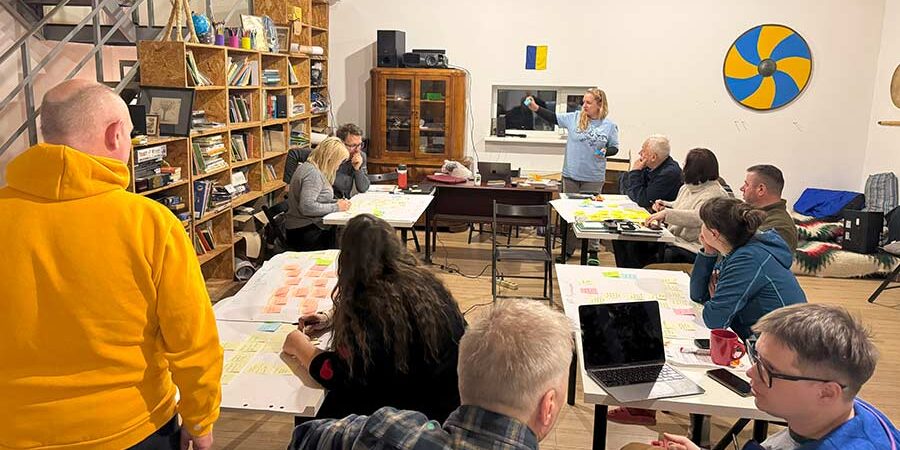From February 26–28, 2025, at the “Hlyboki Balyky” Ecological Research Station, experts and stakeholders discussed the restoration and maintenance of steppe biotopes, the preservation of which is defined by Resolution 4 of the Bern Convention and the EU Habitats Directive. The event was held in a mixed format and gathered representatives of national parks (4 parks offline and about 10 online), scientists, and conservationists.
During the seminar, participants discussed the features of the formation and functioning of grassland ecosystems in Ukraine, their conservation status, and threats. Despite the lack of targeted state programs for steppe restoration, Ukraine already has interesting examples of restoration projects. In particular, specific examples were presented from the Odessa region, the Askania-Nova Biosphere Reserve, the Buzkyi Hard, Podilski Tovtry, and Northern Podillia National Nature Parks, as well as the experience of colleagues from the Czech Republic.
The venue for the event was not chosen by chance, as the “Pidkova” tract is located on the Station’s territory, where a grazing experiment has been ongoing for 4 years, during which biologists study changes in biodiversity under the influence of controlled grazing. The grazing technology, the so-called “holistic management,” is based on the experience of the Australian Savory Institute.
In addition to expert presentations, seminar participants jointly built a situational model that shows the threats to steppe ecosystems and the root causes of these threats, and developed a theory of change for each of the national parks. This approach, based on the Open Standards for the Practice of Conservation, was used to prepare projects for the organization of the territory of Carpathian national parks within the framework of the Frankfurt Zoological Society project.
Among the participants were representatives of national nature parks and the Askania-Nova Biosphere Reserve named after F.E. Falz-Fein, NGO “Ukrainian Nature Conservation Group,” BO “Nature Conservation Fund of Ukraine,” Kherson State University, I.I. Schmalhausen Institute of Zoology of the National Academy of Sciences of Ukraine, M.G. Kholodny Institute of Botany of the National Academy of Sciences of Ukraine, the Network of Eco-Stations of Ukraine, and foreign experts.
The seminar allowed participants from different regions of Ukraine to discuss the most pressing issues related to the conservation of unique steppe ecosystems in a lively discussion, to try to jointly develop solutions to the problems that parks face in their daily work, and to establish connections for further productive cooperation.
You can find more information, as well as video recordings of the presentations, on the Ukrainian version of this news.
The event is held within the framework of the project “Conservation of Natural Heritage for LIFE in Ukraine” (LIFE23-PRE-CZ-ConNaturLIFE Ukraine), co-funded by the European Union and the Ministry of the Environment of the Czech Republic.







